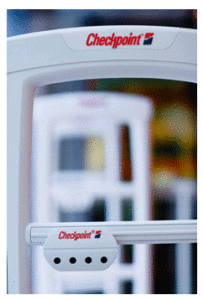 I remember the days when I needed to fill a position on my Loss Prevention Team and we could post an advertisement and I could easily get a dozen applications or more. Some of these applicants were talented and had extensive Loss Prevention experience and some had very little work experience at all but were looking for a job. The same thing happened when our Human Resources Manager would post job ads for cashiers, flow team or just about any position in the store, people needed work and took the time to sit at our application kiosks and apply on the spot. I’m not implying it was easy to conduct all of the interviews and sometimes the pool of prospective employees did not seem very appealing but they wanted the work and we could be somewhat choosey. The upside to this was that from a disciplinary and retention perspective, if an employee was not doing the job expected of them or they had attendance issues it was easy to go through the corrective action process and correct them right out the door. We knew we had people chomping at the bit for those positions.
I remember the days when I needed to fill a position on my Loss Prevention Team and we could post an advertisement and I could easily get a dozen applications or more. Some of these applicants were talented and had extensive Loss Prevention experience and some had very little work experience at all but were looking for a job. The same thing happened when our Human Resources Manager would post job ads for cashiers, flow team or just about any position in the store, people needed work and took the time to sit at our application kiosks and apply on the spot. I’m not implying it was easy to conduct all of the interviews and sometimes the pool of prospective employees did not seem very appealing but they wanted the work and we could be somewhat choosey. The upside to this was that from a disciplinary and retention perspective, if an employee was not doing the job expected of them or they had attendance issues it was easy to go through the corrective action process and correct them right out the door. We knew we had people chomping at the bit for those positions.
Another benefit for the store in a struggling economy was that good employees were fairly easy to retain. There wasn’t a lot of competition looking to hire new area or department managers. Talented employees also knew that they were probably going to get the maximum available hours and were sure of their position within the store. Going to another business had risk associated with it since there was no guarantee they would be getting the same hours or enjoy the management. While the employee may not have cared for all of the managers in our store, the managers’ styles were a known quality to the employee.
Today the economy is improving and it is getting harder to hire and retain talented staff. Many national retail chains are now starting their employees out at $9 and $10 an hour. It is difficult to compete with these kinds of wages for entry level positions and for a small retailer, the choice could be hire at the rate but the cost of doing so is a reduction in the total number of employees you can keep on your team. If you are successful at bringing on an employee at minimum wage, how do you retain the talented employee who may be drawn to greener pastures on the other side of the fence? What can the small, independent store owner do? Let us offer some tips that can help you keep the great employees you can’t afford to lose:
- Show your appreciation. It may seem silly but people want to know they are pleasing their manager/boss. Your store may be too small to have an employee of the month, it doesn’t work well when you only have a small number of people working for you. That recognition loses its value fairly quickly. Buying a drink for someone from a soft drink machine or bringing in pizza or snacks is always well received. It shows you’re thinking of them.
- Get to know your employees and even learn something about their family. If something happens with their family member that they are proud of, like a child graduating from high school, give them an opportunity to tell you about it. If they have a sick family member or even a pet express your sympathy, maybe even suggest they take a day or two off to care for that person or pet.
- Consider buying a small gift card of $10 or $20 every once in a while to a fast food place or a movie theater. Don’t necessarily make it in conjunction with any specific activity the employee did for you or any special sale they made. Do it at randomly and maybe place it in a “thank you” card with a note letting them know you appreciate their hard work.
- Speaking of “Thank You” cards, there aren’t a whole lot of things that mean more than a hand written note mailed to someone’s home expressing gratitude for the service they provide to a company.
If a monetary bonus is in the budget following a successful inventory or prior to a holiday, like a Christmas bonus, it can go a long way to employee retention. A small bonus for someone making minimum wage can make a big difference for them.
It is hard for a small retailer to compete against the big companies, especially in retaining talent. That doesn’t mean it’s impossible. Demonstrate loyalty and appreciation for the people who make your company successful and they will return the favor.
 As many of you know Alpha High Theft Solutions was acquired by Checkpoint Systems many years ago. Checkpoint has encouraged Alpha’s brand growth and innovation. Alpha has produced the best high theft solutions, hands down in the industry. Innovations like Spider Wrap, Keepers, Bottle Locks, Cable Locks, Shark Tags, specialized hard tags literally protect billions of retail products worldwide.
As many of you know Alpha High Theft Solutions was acquired by Checkpoint Systems many years ago. Checkpoint has encouraged Alpha’s brand growth and innovation. Alpha has produced the best high theft solutions, hands down in the industry. Innovations like Spider Wrap, Keepers, Bottle Locks, Cable Locks, Shark Tags, specialized hard tags literally protect billions of retail products worldwide. I don’t know how many times I have heard it, but I have heard it said that shoplifting is not a crime that is premeditated. I have heard and read the arguments that dismiss the seriousness of the crime and portray the criminals as opportunists acting on the spur of the moment. Implicit in the argument is the minimizing of the extent of Organized Retail Crime rings as well as the willingness of shoplifters to steal from your customers. I have even had people who think along these lines voice their disapproval when I had shoplifters I had apprehended and was walking to my security office. I recall one occasion when I apprehended three young men, about 14 years of age and was by myself. I had them stand with their faces against the wall as I had to get my keys out to unlock the door to my office. Two men were sitting outside my office and one muttered under his breath that I was being a butt, only he used a more colorful adjective. I looked at him and told him to mind his own business. The point is that there are people more sympathetic to the criminals than retailers and see shoplifting as a minor infraction at worst and mischievous behavior at best. The attitude among those that hold to those beliefs might change if they realized that these shoplifters aren’t necessarily choosy about who they steal from. They also don’t consider the safety risks posed by the careless acts of these criminals.
I don’t know how many times I have heard it, but I have heard it said that shoplifting is not a crime that is premeditated. I have heard and read the arguments that dismiss the seriousness of the crime and portray the criminals as opportunists acting on the spur of the moment. Implicit in the argument is the minimizing of the extent of Organized Retail Crime rings as well as the willingness of shoplifters to steal from your customers. I have even had people who think along these lines voice their disapproval when I had shoplifters I had apprehended and was walking to my security office. I recall one occasion when I apprehended three young men, about 14 years of age and was by myself. I had them stand with their faces against the wall as I had to get my keys out to unlock the door to my office. Two men were sitting outside my office and one muttered under his breath that I was being a butt, only he used a more colorful adjective. I looked at him and told him to mind his own business. The point is that there are people more sympathetic to the criminals than retailers and see shoplifting as a minor infraction at worst and mischievous behavior at best. The attitude among those that hold to those beliefs might change if they realized that these shoplifters aren’t necessarily choosy about who they steal from. They also don’t consider the safety risks posed by the careless acts of these criminals. There seems to be an advice website or YouTube video for nearly everything these days. Want to know who to call for home repairs? Need information about a car before you buy it? Looking for someone to date? Yes, it’s all on the internet, I’ve even completed some plumbing repairs and small vehicle repairs with the aid of online videos. Unfortunately, while there is a lot of help and good information on the world wide web, there are also sites that purport to be “informational” only but the information they provide supposedly tells people how to shoplift. What I find even more irritating is that some of these theft websites allegedly are written by former Loss Prevention personnel. The information they give is sometimes too accurate and could cause problems for a retailer who isn’t informed themselves on how to prevent thieves from stealing from them.
There seems to be an advice website or YouTube video for nearly everything these days. Want to know who to call for home repairs? Need information about a car before you buy it? Looking for someone to date? Yes, it’s all on the internet, I’ve even completed some plumbing repairs and small vehicle repairs with the aid of online videos. Unfortunately, while there is a lot of help and good information on the world wide web, there are also sites that purport to be “informational” only but the information they provide supposedly tells people how to shoplift. What I find even more irritating is that some of these theft websites allegedly are written by former Loss Prevention personnel. The information they give is sometimes too accurate and could cause problems for a retailer who isn’t informed themselves on how to prevent thieves from stealing from them. Shortage control and theft prevention for small retailers which have no Loss Prevention Associates in the store was the topic of a recent article in an online loss prevention magazine. The points were well made and much of it was directed at stores that may have district or regional Loss Prevention Managers. But the truth is there are many small, independent retailers with no affiliation to a larger company. How do these stores cope with reducing shrink and preventing theft? It could be a tough problem but Loss Prevention Systems Inc. (LPSI)has the solutions that can keep small stores keep shortage down and profits up.
Shortage control and theft prevention for small retailers which have no Loss Prevention Associates in the store was the topic of a recent article in an online loss prevention magazine. The points were well made and much of it was directed at stores that may have district or regional Loss Prevention Managers. But the truth is there are many small, independent retailers with no affiliation to a larger company. How do these stores cope with reducing shrink and preventing theft? It could be a tough problem but Loss Prevention Systems Inc. (LPSI)has the solutions that can keep small stores keep shortage down and profits up. Okay we know that shoplifters are one of the lowest forms of life. Stealing from people is not noble or right in any situation. I believe that shoplifters are a strong competitor for the oldest profession in the world. After all, I bet a cave man was able to steal a rock from another before prostitution even existed and politicians didn’t even exist yet. Even though some in Congress seem to have been around much too long.
Okay we know that shoplifters are one of the lowest forms of life. Stealing from people is not noble or right in any situation. I believe that shoplifters are a strong competitor for the oldest profession in the world. After all, I bet a cave man was able to steal a rock from another before prostitution even existed and politicians didn’t even exist yet. Even though some in Congress seem to have been around much too long.

 Have you ever noticed that when a convenience store robbery takes place the crook never demands all of the credit card slips? I have never heard of a bank robber pulling out a gun and yelling for the teller to give them all of the checks in the drawer. What is it the bad guys are always trying to get their hands on…CASH! While Loss Prevention departments do work on credit card and fraudulent check cases our bigger concern is cash theft and fraud. It has been my experience that in many incidents involving a stolen credit card or check, I have been able to work with bank investigators and police detectives to identify and in some cases resolve those crimes. In those situations there is usually a victim as well as a perpetrator of the crime. When it comes to cash loss cases it becomes another matter altogether, the victim is the store. While we may have video of the crime there may not be any other means of tying in additional information. Another issue with cash losses is that the stolen money cannot be tracked further. Stolen credit cards tend to leave a trail of locations where they are used which can lead to greater opportunities to pick up on additional evidence. The same can be true with fraudulent check writing cases. With a cash loss case, once it’s gone you don’t see it again, money is not traced.
Have you ever noticed that when a convenience store robbery takes place the crook never demands all of the credit card slips? I have never heard of a bank robber pulling out a gun and yelling for the teller to give them all of the checks in the drawer. What is it the bad guys are always trying to get their hands on…CASH! While Loss Prevention departments do work on credit card and fraudulent check cases our bigger concern is cash theft and fraud. It has been my experience that in many incidents involving a stolen credit card or check, I have been able to work with bank investigators and police detectives to identify and in some cases resolve those crimes. In those situations there is usually a victim as well as a perpetrator of the crime. When it comes to cash loss cases it becomes another matter altogether, the victim is the store. While we may have video of the crime there may not be any other means of tying in additional information. Another issue with cash losses is that the stolen money cannot be tracked further. Stolen credit cards tend to leave a trail of locations where they are used which can lead to greater opportunities to pick up on additional evidence. The same can be true with fraudulent check writing cases. With a cash loss case, once it’s gone you don’t see it again, money is not traced. Would you knowingly buy a car with a defective engine? Of course not! So why would you hire a “defective employee”?
Would you knowingly buy a car with a defective engine? Of course not! So why would you hire a “defective employee”?